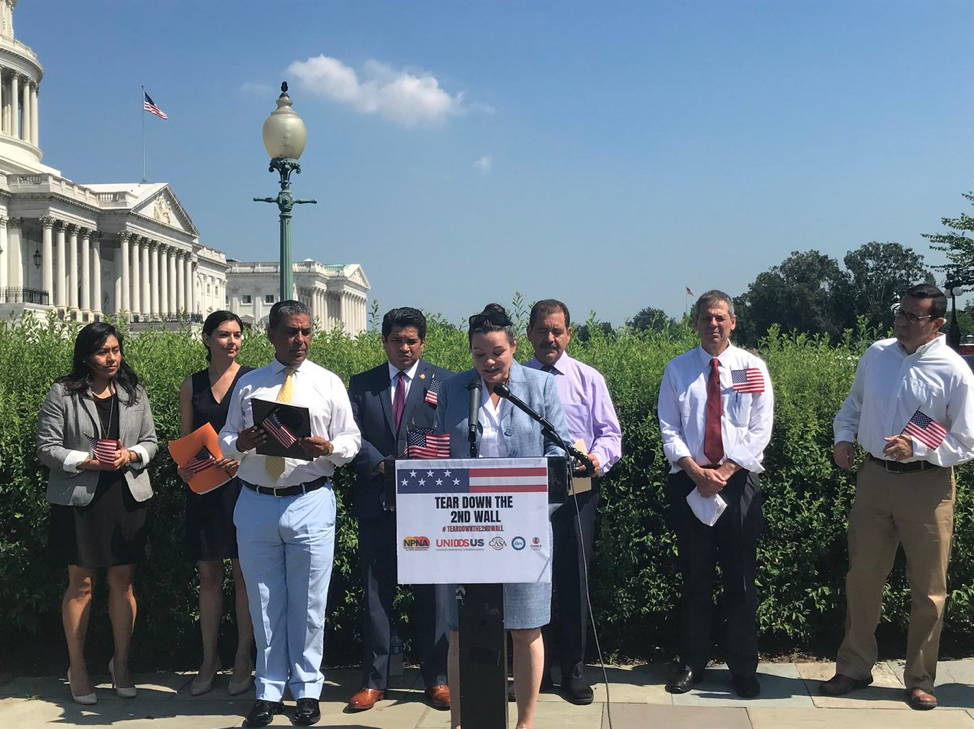Diversity in schools is under attack from the Trump administration
More than 50 years ago, the landmark case of Brown v. Board of Education recognized that “education is perhaps the most important function of state and local governments.” Access to a high-quality education is the cornerstone of building the “American Dream.” For first- and second-generation Latino students, education drives not only their success but also their family’s social and economic status.

Brown’s move to integrate schools and the enactment of the landmark civil rights legislation, the Elementary and Secondary Act in 1965, did more than just benefit black and brown children, it also opened doors to cross-racial dialogue and provided all children the opportunity for an education in a diverse classroom where students tend to feel safer and work better.
Keep up with the latest from UnidosUS
Sign up for the weekly UnidosUS Action Network newsletter delivered every Thursday.
 Though Brown’s focus was elementary and secondary education, the benefits extended to colleges and universities too. Similarly, affirmative action, a way to combat racial discrimination, has been used in college admissions to ensure student body diversity. Affirmative action is not a punitive measure toward one group or another, rather a way for schools to actively improve opportunities for historically underserved groups.
Though Brown’s focus was elementary and secondary education, the benefits extended to colleges and universities too. Similarly, affirmative action, a way to combat racial discrimination, has been used in college admissions to ensure student body diversity. Affirmative action is not a punitive measure toward one group or another, rather a way for schools to actively improve opportunities for historically underserved groups.
Today, Latinos are enrolling in college at record rates, in fact enrollment has more than doubled in the last twenty years. That said, because of the legacy of racial and ethnic discrimination over generations educational disparities persist.
OBAMA-ERA GUIDANCE FOR STUDENTS
During the Obama administration, the Department of Education and the Department of Justice jointly issued two sets of guidance—one for K-12 and one for colleges and universities. These actions provided schools with both the legal framework for “Use of Race” in admissions and guidelines for potential implementation.
Though the guidance was related to the voluntary use of race by schools and did not have the force of law, it provided invaluable tools and resources. Schools were now afforded protection from legal challenges and had a roadmap to follow for committing to diversifying their campuses.

YET ANOTHER ATTACK ON HISTORICALLY UNDERSERVED COMMUNITIES
On July 3, the Trump administration’s Departments of Justice and Education rescinded this guidance with little explanation. Now, the programs created to dismantle decades of institutional racism are at risk. Affirmative action cases are making their way up the judicial system toward the Supreme Court but will now face a decidedly more conservative body than was in place when Fischer was decided in 2016.
For Latino students, this is just another example of the current administration’s assault on their community. Taken together with comments from the Secretary of Education that ignore the Constitutional rights of undocumented students, ongoing threats to the Office of English Language Acquisition, and countless other affronts activists and students are rightfully concerned.
WE STILL HAVE RIGHTS
The Departments’ decision does not change the law. It does not take away our children’s rights. The Supreme Court upheld the use of race-sensitive admissions in Fisher v. University of Texas, a 2016 case on affirmative action, reaffirming the value in diversity.
Educational institutions can, and should, continue to follow practices to diversify their student bodies. These practices encourage Latino success, but also contribute to the success of the entire nation. As future leaders, workers, taxpayers and voters Latino students have the power to drive the economy. Their educational success is at the core of our nation’s continuous progress.

As Chief Justice Earl Warren said in the unanimous Brown decision: “It [education] is the very foundation of good citizenship.”
Because the Supreme Court has played a vital role in advancing civil rights and educational equality, the battle over the nomination of Brett Kavanaugh for the Supreme Court particularly matters to the Latino community. Latinos must use their votes this fall to signal to Congress that education is crucial, and that Congress must hold the Department of Education accountable when it undermines educational equity.
Latinos must voice their opinions to make sure the Senate does its job to prevent the confirmation of any high court nominee that would overturn settled affirmative action cases.
By Rebeca Shackleford, Education Policy Analyst

